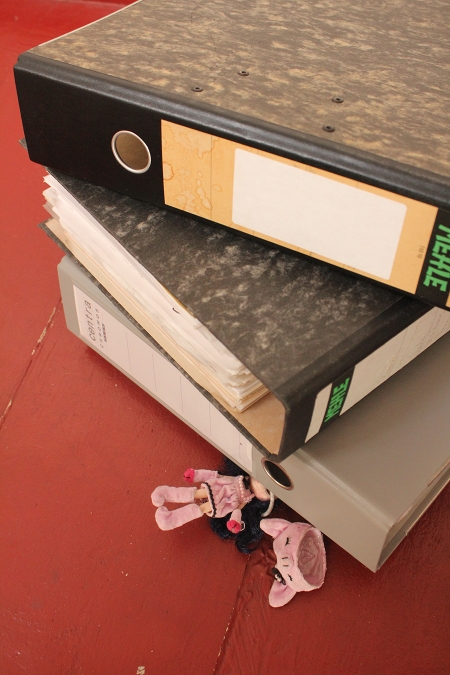A Acta
Unfortunately on Oct. 1st some countries signed the socalled Anti-Counterfeiting Trade Agreement (ACTA). The European Union may eventually join in. The agreement is rather problematic.
As an example here a citation from Section 5, No.4, E-15:
“A Party may provide, in accordance with its laws and regulations, its competent authorities with the authority to order an online service provider to disclose expeditiously to a right holder information sufficient to identify a subscriber whose account was allegedly used for infringement, where that right holder has filed a legally sufficient claim of trademark or copyright or related rights infringement, and where such information is being sought for the purpose of protecting or enforcing those rights.”
A “party” seems to be the countries which signed the agreement and according to
E-3,c):
“competent authorities includes the appropriate judicial, administrative, or law enforcement authorities under a Party’s law;”
In particular “competent authorities” don’t need to be judges.
So a right holder (i.e. for example someone who had filed a trademark) may -as I understand the above- in principle get even without a judge and even in disputable cases private data from an internet provider.
For more see for example the collected documents at La quadrature du net, or read the full text.
The European parliament seems also to have problems with ACTA. However the situation is not yet settled in the EU. Moreover there seems to be no real process of discussing and questioning the current use and sense of IPR (Intellectual Property Rights) per se. The Anti-Counterfeiting Trade Agreement (ACTA), Fact sheet from the European Comission in 2008 states that:
The competitiveness of the EU economy depends on large part of economic activities that need IPR protection, i.e. high quality products and brands (trademarks, geographical indications), innovative industries (patents) or entertainment (copyright). Large scale abuse of these rights, by counterfeiters who free-ride on the innovative and quality-enhancing efforts undertaken by the EU industry has a devastating impact on growth and employment.
So for the EU officials it seems to be clear that the current use of IPR fosters innovation and creativity. In particular there is for example no big discussion about, how much inventors or creators really benefit from these rights, what constitutes intellectual work in our times and how IPR may eventually hamper innovation and creativity etc.
In an earlier randform post the game project MMOGEP which contains the game Utopia was introduced in a draft. I meanwhile put a little bit more details (please see sections “costs for development” and “usefulness”) into the draft of Utopia. In particular I tried to adress a little bit of the IPR/patent issue and started to discuss some possible alternatives.
A discussion about “IPR” in academia can be found in this randform post.
So let’s see what happens to schneewitchen.
